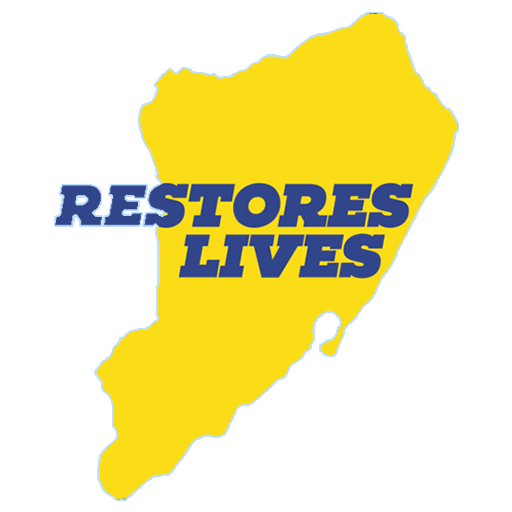Staten Island, New York, United States
Camelot - Wilson Residential
Unclaimed
Unclaimed
This provider hasn’t verified their profile’s information. Are you the owner of this center? Claim your listing to better manage your presence on Recovery.com.
Provider's Policy
Client fees are structured so that treatment is available to all who need it. Clients, or parents of adolescents, are expected to pay what they can reasonably afford. The exact amount is determined on a case-by-case basis and assessed on a sliding scale. We accept major insurance plans, HMO, and Medicaid.

Contact Camelot - Wilson Residential
Connect with Camelot - Wilson Residential by calling them directly.
Are you the owner of this center?
Claim this center
About Camelot - Wilson Residential
This residential program serves adult men with substance use disorders (SUD), emotional struggles, behavioral challenges, and family issues. It provides care 24 hours a day, 7 days a week. The average stay lasts 6 to 9 months and includes a transition to outpatient aftercare, with continued support through family counseling to help sustain long-term recovery.
Grow From Within and Beyond
The program offers individual, family, and group counseling to address personal and relational challenges. Vocational services help clients build work-related skills, while recreational activities promote balance and positive engagement. These services work together to support emotional healing and prepare each individual for a stable and healthy life beyond treatment.
Settle Into Supportive Space
Clients live on-site in housing provided by the program, creating a stable and structured environment throughout their stay. Daily routines include access to counseling, skill-building, and recreational activities, offering consistency and care. This setting supports meaningful progress toward recovery in a safe and encouraging space.
Read More
Insurance Accepted
Provider's Policy:Client fees are structured so that treatment is available to all who need it. Clients, or parents of adolescents, are expected to pay what they can reasonably afford. The exact amount is determined on a case-by-case basis and assessed on a sliding scale. We accept major insurance plans, HMO, and Medicaid.

Medicaid
<p>Signed into law through the Social Security Act in 1965, Medicaid is a United States government program that offers health insurance to those with limited income.</p>
See rehabs that accept this provider.
Center Overview
Treatment Focus
You can admit to this center with a primary substance use disorder or a primary mental health condition. You'll receive support each step of the way and individualized care catered to your unique situation and diagnosis.

Care Options






Treatment
Specializations
Co-Occurring Disorders
A person with multiple mental health diagnoses, such as addiction and depression, has co-occurring disorders also called dual diagnosis.
Drug Addiction
Drug addiction is the excessive and repetitive use of substances, despite harmful consequences to a person's life, health, and relationships.
Approaches
Family Involvement
Providers involve family in the treatment of their loved one through family therapy, visits, or both–because addiction is a family disease.
Individual Treatment
Individual care meets the needs of each patient, using personalized treatment to provide them the most relevant care and greatest chance of success.
Gender-Specific
Separate treatment for men or women can create strong peer connections and remove barriers related to trauma, shame, and gender-specific nuances.
Therapies
1-on-1 Counseling
Patient and therapist meet 1-on-1 to work through difficult emotions and behavioral challenges in a personal, private setting.
Family Therapy
Family therapy addresses group dynamics within a family system, with a focus on improving communication and interrupting unhealthy relationship patterns.
Life Skills
Teaching life skills like cooking, cleaning, clear communication, and even basic math provides a strong foundation for continued recovery.
Psychoeducation
This method combines treatment with education, teaching patients about different paths toward recovery. This empowers them to make more effective decisions.
Recreation Therapy
In recreation therapy, recovery can be joyful. Patients practice social skills and work through emotional triggers by engaging in fun activities.
Conditions We Treat
Anxiety
Anxiety is a common mental health condition that can include excessive worry, panic attacks, physical tension, and increased blood pressure.
Depression
Symptoms of depression may include fatigue, a sense of numbness, and loss of interest in activities. This condition can range from mild to severe.
Substances We Treat
Alcohol
Using alcohol as a coping mechanism, or drinking excessively throughout the week, signals an alcohol use disorder.
Co-Occurring Disorders
A person with multiple mental health diagnoses, such as addiction and depression, has co-occurring disorders also called dual diagnosis.
Drug Addiction
Drug addiction is the excessive and repetitive use of substances, despite harmful consequences to a person's life, health, and relationships.
Aftercare
Experience
Personal Amenities
Special Considerations
Gender-specific groups
Patients in gender-specific groups gain the opportunity to discuss challenges unique to their gender in a comfortable, safe setting conducive to healing.
We love hearing about your treatment experience
Help individuals and families seeking treatment by sharing your first-hand experience with this treatment provider. Review Guidelines.










